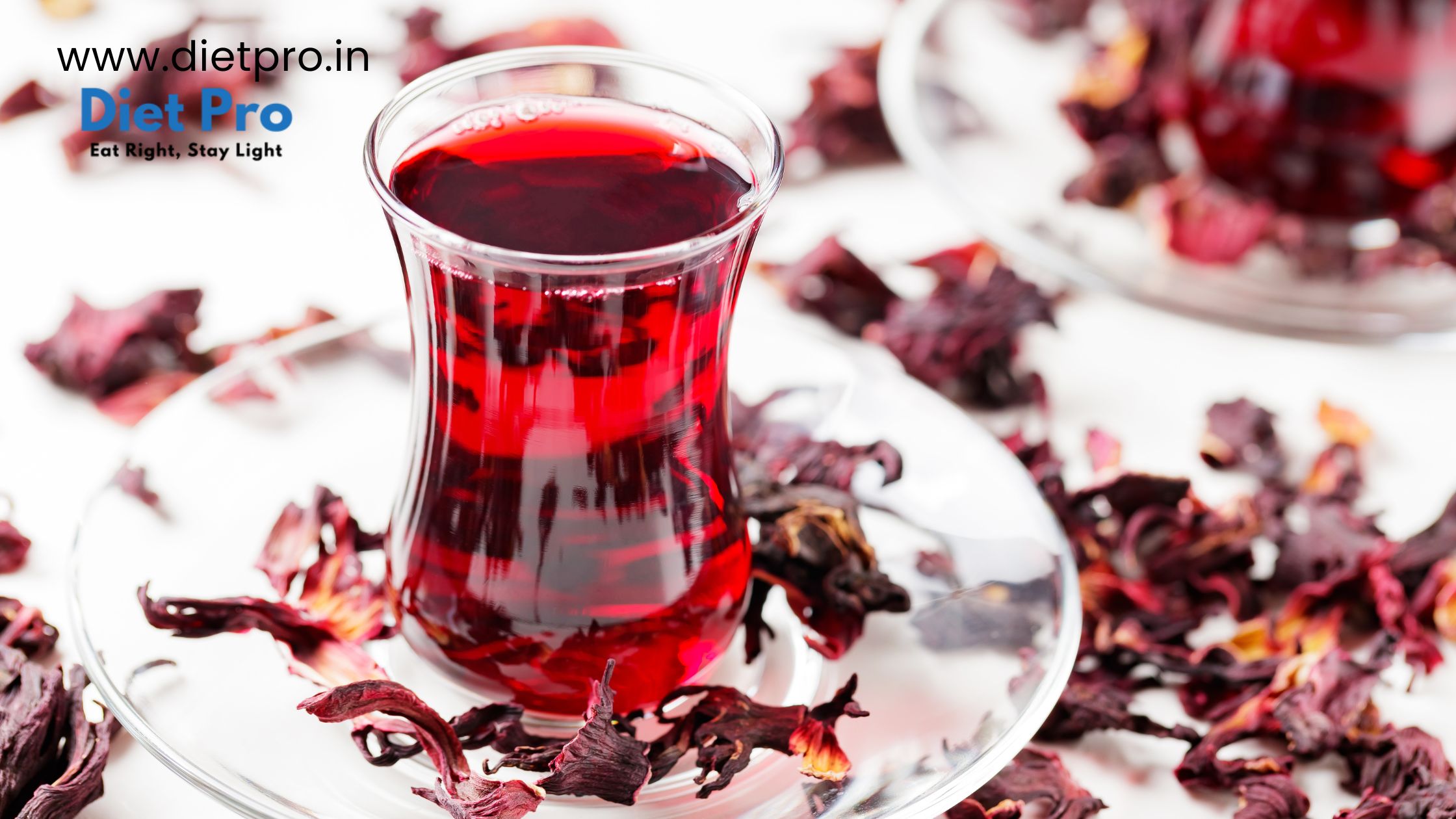Hibiscus is a genus of flowering plants in the family Malvaceae. It includes a wide range of species, many of which are known for their large, colorful, and attractive flowers. These flowers are typically trumpet-shaped and can come in various colors, including shades of red, pink, white, orange, and even purple. Here we will also discuss about hibiscus during pregnancy.
Hibiscus plants are native to tropical and subtropical regions around the world and are known for their ornamental and medicinal uses.
What is Hibiscus tea ?
Hibiscus tea is a popular herbal tea made from the dried petals of the hibiscus plant, scientifically known as Hibiscus sabdariffa. This tea is known for its vibrant red color, tangy flavor, and potential health benefits. Hibiscus tea, often referred to as “hibiscus drink,” is a popular herbal beverage made from the dried calyces of the hibiscus plant (Hibiscus sabdariffa). This vibrant and tangy tea offers a range of potential health benefits:

Hibiscus Tea Benefits
- Rich in Antioxidants: Hibiscus tea is loaded with antioxidants, particularly anthocyanins and polyphenols. These compounds help combat oxidative stress, which is associated with various chronic diseases and aging.
- Heart Health: Several studies suggest that hibiscus tea may help lower blood pressure. It is believed to have a mild diuretic effect, which can contribute to reducing blood pressure. Regular consumption may also have a positive impact on cholesterol levels by reducing “bad” LDL cholesterol and increasing “good” HDL cholesterol.
- Blood Sugar Regulation: Hibiscus tea might have a positive effect on blood sugar levels. Some research suggests that it can help lower blood sugar levels and improve insulin sensitivity, which is beneficial for individuals with diabetes or those at risk of developing diabetes.
- Weight Management: Some studies suggest that hibiscus tea could aid in weight management. Its potential diuretic and metabolism-boosting effects may contribute to maintaining a healthy weight.
- Digestive Health: Hibiscus tea is believed to have a mild laxative effect and can help promote healthy digestion. It may also help alleviate constipation due to its fiber content.
- Kidney Health: The diuretic properties of hibiscus tea may support kidney function by increasing urine output and potentially aiding in the removal of excess waste and toxins from the body.
- Anti-Inflammatory: The antioxidants and polyphenols in hibiscus tea have anti-inflammatory properties, which could be beneficial for reducing inflammation in the body.
- Liver Health: Some research suggests that hibiscus compounds might have protective effects on the liver, potentially helping to prevent liver damage and supporting its overall health.
- Immune Support: The vitamin C content in hibiscus tea contributes to immune system support and overall well-being.
- Flavor and Hydration: Beyond its potential health benefits, hibiscus tea is known for its refreshing, tart flavor, making it a pleasant and hydrating alternative to sugary beverages.
Is Hibiscus Tea Safe During Pregnancy
 While hibiscus tea is generally considered safe for most people, including those who are not pregnant, there are some considerations and potential risks for pregnant women. It’s recommended that pregnant women exercise caution when consuming hibiscus tea due to its potential effects on pregnancy and health. Here’s why:
While hibiscus tea is generally considered safe for most people, including those who are not pregnant, there are some considerations and potential risks for pregnant women. It’s recommended that pregnant women exercise caution when consuming hibiscus tea due to its potential effects on pregnancy and health. Here’s why:
Hibiscus During Pregnancy
Uterine Contractions:
Hibiscus tea is sometimes associated with uterine stimulant properties. In higher amounts, it might potentially stimulate uterine contractions, which could lead to miscarriage or preterm labor. For this reason, pregnant women are often advised to avoid excessive consumption of hibiscus tea.
Blood Pressure and Blood Sugar Effects
Hibiscus tea’s potential to lower blood pressure and blood sugar levels could be problematic for pregnant women who are already at risk of low blood pressure or gestational diabetes.
Iron Absorption
Hibiscus tea contains compounds that might inhibit the absorption of non-heme iron (the type of iron found in plant-based foods) in the digestive system. Iron is particularly important during pregnancy to support the increased blood volume and the needs of the developing fetus. Drinking hibiscus tea along with iron-rich foods might hinder iron absorption.
Dehydration
Due to its mild diuretic effect, hibiscus tea might contribute to increased urine output and potential dehydration, especially if consumed in excess. Staying well-hydrated during pregnancy is crucial, so this is an important consideration.
Given these potential risks, pregnant women are generally advised to consume hibiscus tea in moderation, if at all. It’s a good idea to consult with a healthcare professional before including hibiscus tea in your diet during pregnancy. If you do choose to consume hibiscus tea, consider limiting your intake to small amounts and ensuring that it doesn’t interact with any specific health conditions or medications you might be taking.
As always, the safety of any herbal remedy during pregnancy should be discussed with a healthcare provider to ensure the well-being of both the mother and the developing fetus.
Hibiscus Nutrition
- Rich in antioxidants, including vitamin C, polyphenols, and anthocyanins.
- Potential benefits for heart health and blood pressure regulation.
- Contains hibiscus acid and other organic acids contributing to its tangy flavor.
- May support immune function and provide anti-inflammatory effects.
Read More :- Benefits of Poha
Read More :- Benefits of Okra Water
Bottom Line
It’s important to note that while hibiscus tea offers potential health benefits, it should not be considered a replacement for medical treatments or advice. If you have specific health concerns or conditions, it’s advisable to consult with a healthcare professional before making significant changes to your diet or consuming herbal teas. Additionally, individual responses to herbal remedies can vary, so it’s a good idea to start with a small amount to see how your body reacts.
